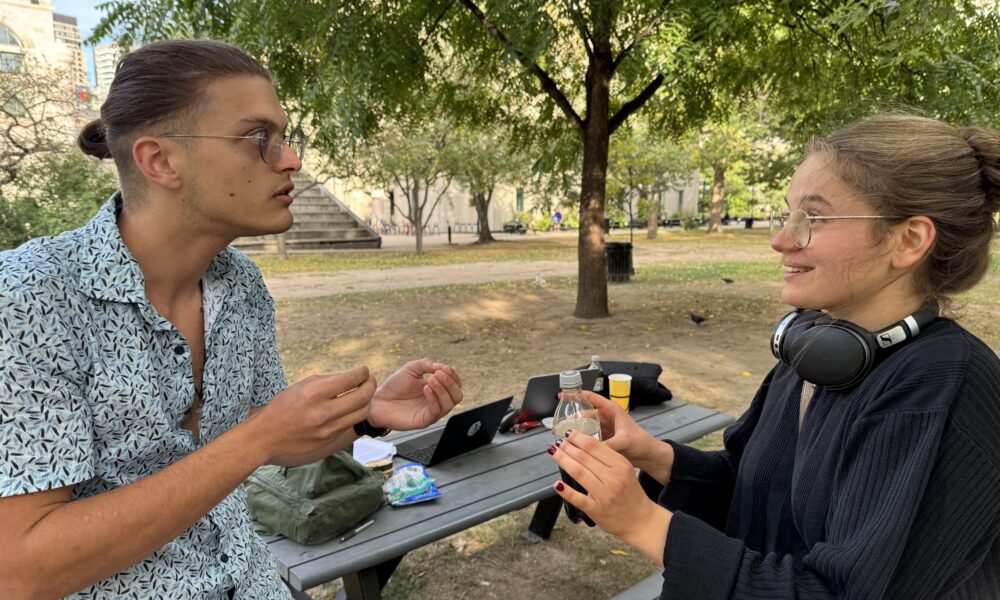For many students, university marks the first leap into adulthood—living with strangers, taking on leadership roles, and meeting people from all walks of life. In these situations, conflict is not just a possibility; it’s a certainty.
Just last week, my colleague and I were discussing how to resolve an issue of poor communication when he shrugged and said, “It only becomes a problem if we talk about it.” I couldn’t help but think, “But it’s already a problem for me!” The reality is that issues don’t disappear when we stop talking about them; they fester and grow beneath the surface instead.
Somewhere along the way, Gen Z developed the belief that pretending everything is fine makes everything fine. In reality, conflict avoidance is not a virtue; in fact, it becomes more damaging than facing conflicts head-on. We’ve created a generation of people-pleasers who think that staying neutral and avoiding disagreement keeps everyone happy. But, under pressure, this shallow contentment is quick to fall apart. The truth is, if a relationship can’t withstand honest communication, then it probably wasn’t built on solid ground to begin with. Healthy relationships are strengthened by addressing disagreements, not by pretending they don’t exist.
Whether it’s through changing the subject, delaying important conversations, or ghosting, conflict-avoidant behaviours are not only ineffective but downright harmful—especially for a generation already struggling with high rates of anxiety and depression. A 2021 study revealed that individuals who confront and resolve daily conflicts tend to experience lower stress levels and a more stable emotional state. Conversely, suppressing emotions has been linked to an increased risk of serious health issues, including premature death. Additionally, relying on nervous laughter or fake smiles rather than addressing distress can exacerbate feelings of loneliness and depression.
Conflict avoidance can also have detrimental effects on interpersonal relationships. It can lead to gunny sacking, a term used by psychologists to describe the unhealthy practice of storing up unresolved grievances and negative feelings about someone or something instead of addressing them as they arise. Over time, this buildup creates a metaphorical “gunny sack” filled with complaints, which can lead to explosive confrontations when the person finally reaches a breaking point.
Worse, avoiding conflict often leads to passive-aggressive behaviour—where people express their frustration indirectly, through sarcasm or subtle digs—because they don’t know how to confront it directly and lack effective conflict-management skills. The discomfort of long-term, underlying resentment has much more dire effects than the uncomfortable experience of direct communication.
There is a prevailing notion—especially in Canada—that being “nice” means never taking a stance that might upset someone else. But niceness is not the same thing as kindness. Niceness is surface-level, often driven by fear of judgment or rejection, while kindness involves deeper understanding, honesty, and sometimes difficult conversations. Direct communication is a genuine act of care; these conversations imply that someone is willing to embrace the discomfort of vulnerability and open dialogue to strengthen the relationship because they want it to work. In doing this, we offer others the chance to change their behaviour and extend them grace. We need to recognize this kind of communication as an expression of love. I would choose this kind of kindness over mere “niceness” any day.
Of course, this doesn’t mean every minor inconvenience requires a major discussion, nor should we jump to criticize someone for every small misunderstanding. In some cases, if someone is particularly unreceptive, it’s healthier to step back rather than push for a conversation. However, more often than not, people are more open to communication than anticipated. If an issue can be resolved through dialogue, we should engage in that conversation.
For a generation that has the capacity to turn anything into a joke, it’s time to get serious. The key lies in learning how to approach conflict constructively without making it personal or hurtful. This means being honest, maintaining a solution-focused mindset, using “I” statements rather than “you” statements, and leading with compassion and empathy. This direct communication, as opposed to avoidance, is what truly pleases people.







